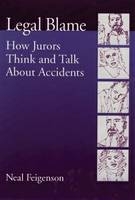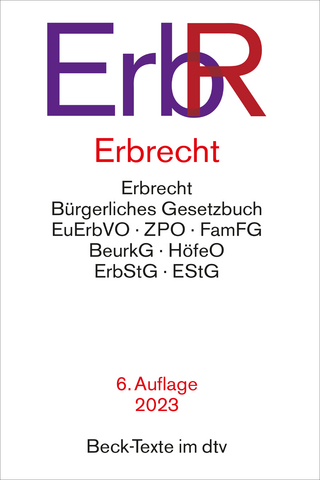
Legal Blame
How Jurors Think and Talk About Accidents
Seiten
2001
American Psychological Association (Verlag)
978-1-55798-834-8 (ISBN)
American Psychological Association (Verlag)
978-1-55798-834-8 (ISBN)
- Keine Verlagsinformationen verfügbar
- Artikel merken
This text explores how jurors try to do justice in the wake of accidents, and reveals much about the psychology of jury decision-making. It offers a framework for how jurors deploy their common sense, together with the law and the facts, to produce what the author refers to as ""total justice"".
This text explores how jurors try to do justice in the wake of accidents, and reveals much about the overall psychology of jury decision-making. Neal Feigenson, a professor of law, offers a framework for how jurors deploy their common sense, together with the law and the facts, to produce what the author refers to as ""total justice"". Feigenson analyzes both the words lawyers use to help jurors assign blame and the words jurors themselves use as they make decisions. With a minimal use of jargon, he summarizes the leading research from social and cognitive psychology to show how everyday habits of thought and feeling inform jurors' decisions. Contrary to common stereotypes about jurors, jurors integrate their thoughts and feelings to reach decisions that are usually correct enough by legal standards, although not always for what the law would consider the right reasons. This text provides a nuanced appreciation of the civil jury, with examples and in-depth analysis of how jurors help make tort law.
This text explores how jurors try to do justice in the wake of accidents, and reveals much about the overall psychology of jury decision-making. Neal Feigenson, a professor of law, offers a framework for how jurors deploy their common sense, together with the law and the facts, to produce what the author refers to as ""total justice"". Feigenson analyzes both the words lawyers use to help jurors assign blame and the words jurors themselves use as they make decisions. With a minimal use of jargon, he summarizes the leading research from social and cognitive psychology to show how everyday habits of thought and feeling inform jurors' decisions. Contrary to common stereotypes about jurors, jurors integrate their thoughts and feelings to reach decisions that are usually correct enough by legal standards, although not always for what the law would consider the right reasons. This text provides a nuanced appreciation of the civil jury, with examples and in-depth analysis of how jurors help make tort law.
| Erscheint lt. Verlag | 1.5.2001 |
|---|---|
| Reihe/Serie | Law and Public Policy - Psychology and the Social Sciences Series |
| Verlagsort | Washington DC |
| Sprache | englisch |
| Themenwelt | Geisteswissenschaften ► Psychologie |
| Recht / Steuern ► Allgemeines / Lexika | |
| Recht / Steuern ► EU / Internationales Recht | |
| Recht / Steuern ► Privatrecht / Bürgerliches Recht ► Besonderes Schuldrecht | |
| ISBN-10 | 1-55798-834-X / 155798834X |
| ISBN-13 | 978-1-55798-834-8 / 9781557988348 |
| Zustand | Neuware |
| Haben Sie eine Frage zum Produkt? |
Mehr entdecken
aus dem Bereich
aus dem Bereich
steueroptimiert übertragen und den Schenker absichern
Buch | Softcover (2023)
C.H.Beck (Verlag)
CHF 20,85
Vertragliche Schuldverhältnisse
Buch | Softcover (2022)
C.F. Müller (Verlag)
CHF 36,40
Bürgerliches Gesetzbuch, EuErbVO, ZPO, FamFG, BeurkG, HöfeO, ErbStG, …
Buch | Softcover (2023)
dtv Verlagsgesellschaft
CHF 36,25


